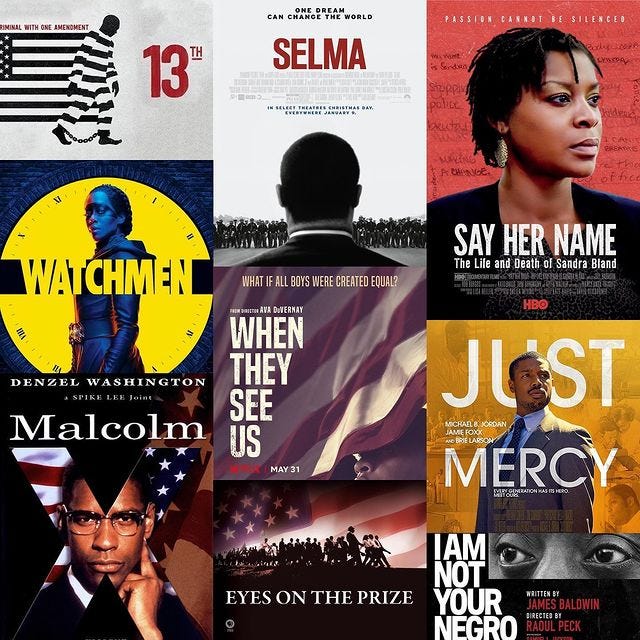Hey friends! Hope you’ve been having a good day. (And if not, there’s always tomorrow…)

Surviving another Monday
Not like the start of a new week isn’t tough enough on its own merits, but I thought this Atlantic article was a sobering read on the virus still simmering on our national backburner. In “America Is Giving Up on the Pandemic,” we’re treated to this lovely kicker:
“And yet, even though this health crisis reflects our nation’s political, social, and civic infrastructure, this plague has no consideration for morality. People partying in a pool may live while those protesting police brutality may die. People who assiduously followed the rules of social distancing may get sick, while those who flouted them happily toast their friends in a crowded bar. There is no righteous logic here. There is no justice in who can breathe easy and who can’t breathe at all.”
How about something more motivating to bring us back, though? For my friends sticking it out in NYC, The Infatuation put together a giant list of 35 restaurants supporting the black community right now. We stan opening the purse at the same time we open our belly!
Also, I meant to throw a little shade at how The Help had become one of the top-streamed movies on Netflix this past week when I was recommending Selma on Friday. (Fun fact I learned today: Ava DuVernay, in her past life as a publicist, worked on the promotion of The Help!) While there are certainly elements of that movie I enjoy, I don’t think now is the right time to be absorbing that story. If you don’t believe me, take it from none other than the actress who played the film’s chief antagonist, Bryce Dallas Howard:
Also, in case you weren’t reading your emails over the weekend, I’ll once again plug that my employer is matching donations to racial justice organizations up to $1,000 — and there’s still plenty that can be matched under my name! Venmo me at @marSHAffer and note any organization preferences for your donation. (Supported organizations listed here.)
Now, what you came for…

DAY 88: Josie and the Pussycats (available on HBO GO and HBO Max)
Plenty of movies don’t get fully appreciated in their own time — It’s a Wonderful Life, Vertigo, The Shawshank Redemption. Another film I think we’ll be adding to that list sooner rather than later is the 2001 film Josie and the Pussycats, a misunderstood masterpiece (ok, it’s not that level of greatness, but please allow me the alliteration) of the pre-9/11 era. This farce on consumerist indoctrination, packaged inside a rollicking good time of a girl group’s rise to rock stardom, might have been a little too cynical for a country thinking it was living through the End of History (and it might make a great double feature with Starship Troopers for that very reason). But now, with enough cultural hindsight, the film’s critiques are scarily prescient and depressingly resonant.
I was eight years old when the film version of Josie and the Pussycats was released, so I can do only the most basic reconstruction of the 2001 moviegoer. But I can imagine just how easy it would be to mistake it for the kind of mindless schlock it mercilessly mocks. Just read the Rotten Tomatoes critical consensus, presumptively from the theatrical release: “This live-action update of ‘Josie and the Pussycats’ offers up bubbly, fluffy fun, but the constant appearance of product placements seems rather hypocritical.”
In the nearly two decades since this film hit screens, Americans are seemingly more aware of the consumerism in which our culture is so heavily steeped. The corporate logos squeezed in every available crevasse of the frame are so undeniable and obvious to the modern viewer that it’s hard to imagine anyone saying with a straight face nowadays that Josie and the Pussycats is an endorsement of this relentless corporate bludgeoning. after all, we have endured the rise of Kardashianism as well as the reality show product spotlights that surged as traditional advertising fell. And need any further proof of how insidious this ideology is? Don’t forget what George W. Bush told Americans to do in the wake of 9/11, just six months after the film was released: go shopping.
Writer/director duo Harry Elfont and Deborah Kaplan wisely chose to steep their modern Josie and the Pussycats story in this culture because, after all, rock has become more an empty signifier than a vital musical movement. It is dominated and controlled more by elites and executives than the people from whom it traditionally arose. This acknowledgement of a sad reality makes the traditional “behind the music” tale more than rote repetition of a cliché; it exposes the corporate logic behind that narrative becoming a cliché. When record companies can pre-package starlets into familiar stories, it dumbs down their consumers and allows them to slip in some more subliminal messages to purchase other goods.
This kind of cynical, conspiratorial thinking might have seemed far-fetched in 2001. Sadly – or perhaps encouragingly, depending on your vantage point – it feels oddly plausible now. And if you have any doubt, pay attention to the record executive Wyatt Frame, played by Alan Cumming, and his frequent fourth wall-breaking winks to the audience. It’s a look that says, “you hate this, but you know you’ll be buying Starbucks later today because of this.” There are signs for hope that our society has latched onto some of the thinking espoused by Josie and the Pussycats. But is it too late to reverse the cultural direction that relegated this film to the sidelines of discussion for so long?
Be good to yourselves and to each other,
Marshall
P.S. — Another rec cribbed largely from an old review, but a recent rewatch of the film confirms that my 2016 take was not a bunch of hot air. Josie and the Pussycats is legitimately genius.




